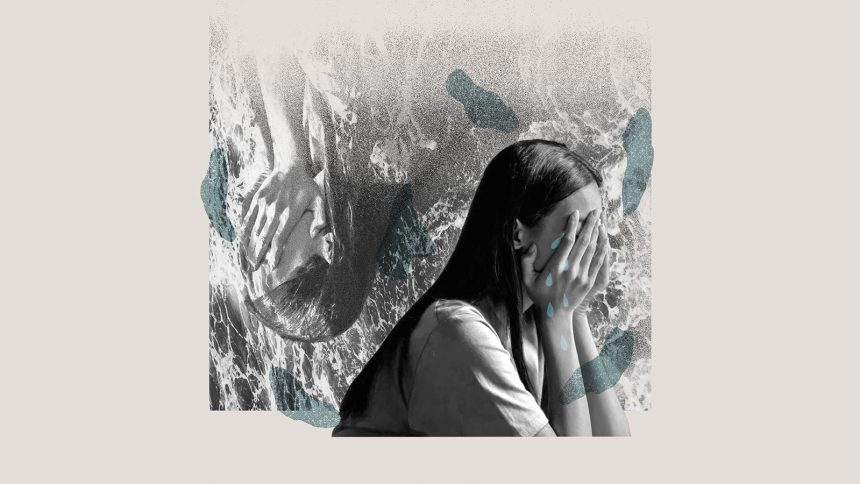This story is part of the Grist arts and culture series Moral Hazards, a weeklong exploration of the complex — sometimes contradictory — factors that drive our ethical decision-making in the age of global warming. In May 2014, Kate Schapira brought a small table with a hand-painted sign to a park near her home in Providence, Rhode Island, and began offering a listening ear to strangers who wanted to share their worries. The sign read “Climate Anxiety Counseling Booth,” a term that was not commonly used at that time. As an English professor with no psychological or climate science background, she simply provided a space for people to express their concerns. Over the summer, she set up her booth around 30 times, and people approached her tentatively yet earnestly to talk about their fears.
Those who stopped by shared a range of concerns, some directly related to climate change, all exacerbated by it. The man who felt guilty about not being able to afford air conditioning to keep his disabled son comfortable. The young woman who was frustrated by her roommate’s excessive plastic bottle use. The former student who feared a future of devastation. Schapira’s intention behind the booth was initially for self-care — to lift herself out of a state of depression and desperation caused by reading about climate change. She also felt a sense of guilt for rejecting a friend’s own anxieties about the climate crisis in the past, prompting her to create a space for these conversations.
Over the next decade, Schapira continued to bring her booth around New England and the mid-Atlantic, noticing a common theme in the worries people shared with her: the changing world was straining relationships and emotions. By 2019, the conversations about climate change were no longer hypothetical future scenarios but immediate concerns. Many were afraid of the losses they would face. The phenomenon of climate anxiety had become mainstream, reflecting the growing awareness of climate change and its impacts.
In recent years, climate change has shifted from a niche environmental issue to a widespread public concern, driven by extreme weather events and impacts on affluent communities. This increased awareness has fostered a culture of therapy and self-care, particularly evident during the pandemic. However, there is a question of ethics in focusing on individual feelings when the real harms of climate change primarily impact marginalized communities with less capacity to address them.
Rebecca Weston, co-president of the Climate Psychology Alliance, highlighted the need to broaden the narrative around climate anxiety, recognizing that it affects people from diverse backgrounds in different ways. The experiences range from existential fear to acute trauma, underscoring the disparities in how individuals perceive and respond to climate change based on privilege.
As discussions around climate anxiety evolve, there is a growing awareness of the need for empathy and understanding across diverse experiences. It is crucial to acknowledge the varied emotional responses to climate change and to ensure that marginalized voices are not overshadowed in the conversation about climate anxiety.






